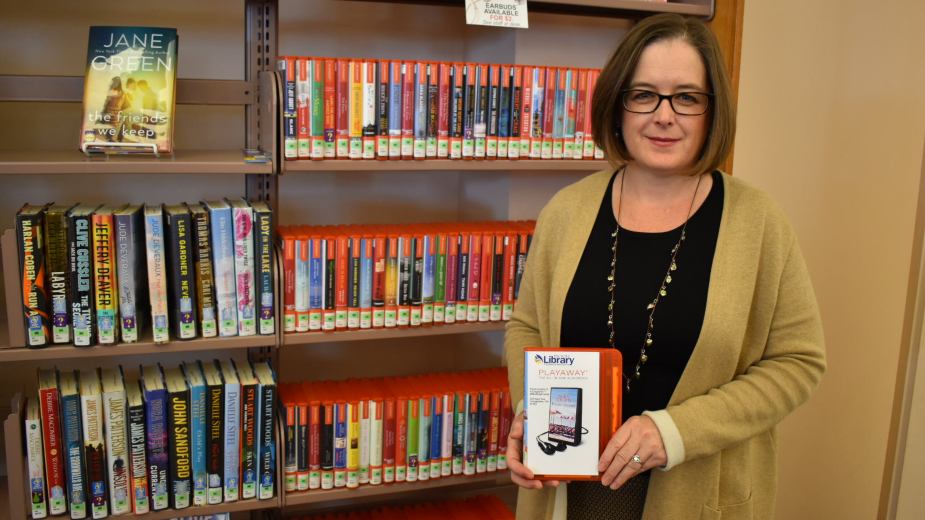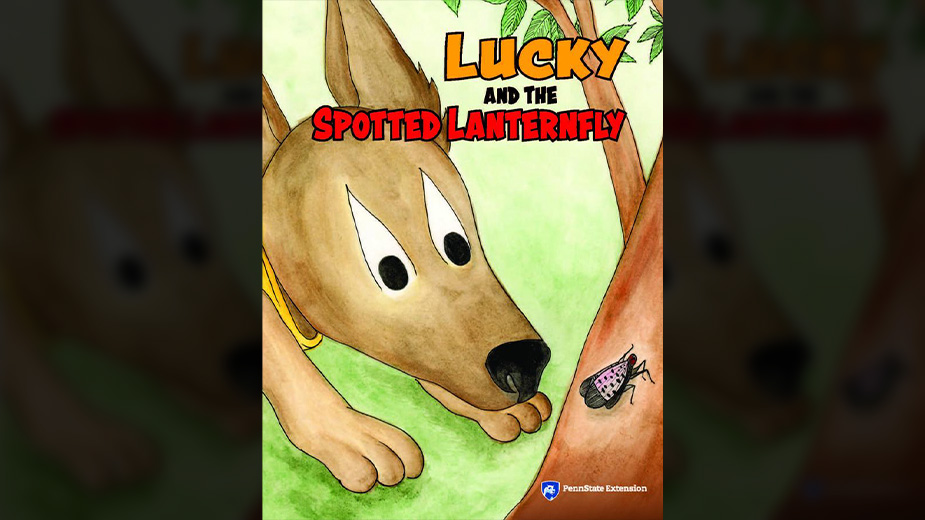Libraries Chafe Against Publisher’s E-book Purchase Restriction
YOUNGSTOWN, Ohio – When author Nora Roberts’ latest novel, “The Rise of Magicks: Chronicles of the One, Book 3,” is released later this year, libraries will be able to purchase as many copies of the print edition as they want, But electronic copies are another matter entirely.
For the first eight weeks after the book’s release, its publisher, Macmillan Publishers, will restrict libraries to purchasing a single e-book copy, regardless of size or number of branches.
Macmillan is one of the top five book publishers. The others are Hachette, HarperCollins, Penguin Random House and Simon & Schuster.
The restriction, which went into effect Nov. 1, threatens to help create what Aimee Fifarek says, executive director of the Public Library of Youngstown & Mahoning County, described as a “new digital divide” for communities.
Last Friday, several large U.S. library systems – including the Columbus Metropolitan Library – suspended purchases of all electronic versions of Macmillan’s new releases to protest the new restrictions.
In response to the cap, the Youngstown-Mahoning County system has chosen to not purchase the one e-book copy it is permitted during the restriction period, Fifarek said. It instead will use that time “to bring the issue of what we consider to be an unfair business practice to our users’ attention,” she continued.
Last Thursday, the library launched a webpage providing information about the embargo, a list of the books affected that month and links to other information as well as an online petition.
The buying cap follows a test by Macmillan last year with its Tor Books imprint, which focuses on science fiction and fantasy titles. In response to “growing fears that library lending was cannibalizing sales,” Macmillan “winnowed” a portion of the Tor e-book frontlist for 16 weeks, Macmillan CEO John Sargent told authors, illustrators and agents.
“One thing is abundantly clear. The growth in e-book lends through libraries has been remarkable,” he said. “For Macmillan, 45% of the e-book reads in the US are now being borrowed for free from libraries. And that number is still growing rapidly.”
The $2 – and dropping – average revenue Macmillan gets from those library reads, after the wholesaler share, is “a small fraction of the revenue we share with you on a retail read,” he continued.
According the memo, Macmillan will make a single e-book copy of a book available for $30; the fee for first copies is now $60 and requires renewal after two years or 52 lends. Additional e-book copies won’t be available for library purchase until after the eight-week embargo.
The new terms are designed to protect the value of authors’ books during the “first format publication” period while ensuring the mission of libraries is supported, Sargent said.
“After the eight weeks, we can buy as many as we want, or – as we suspect will happen – either [patrons will] look for a paper copy or they’ll go buy it themselves, which is unfortunate because not everybody can afford to buy books,” Jim Watkins, director of the Warren-Trumbull County Public Library, said.
The Warren-Trumbull County system projects it will see an 11% increase in the number of e-books checked out this year, public relations manager Cheryl Bush reported.
“Anyone who’s not able to purchase titles on their own is not going to be able to access titles until such time as the library can purchase them on their behalf,” Fifarek said.
The single-copy limit applies regardless of size, whether a system has a single branch such as the McKinley Memorial Library in Niles, six like Warren-Trumbull County or 15 like Youngstown’s system.
PLYMC purchased seven e-book copies of former First Lady Michelle Obama’s book, “Becoming,” which was published in 2018, in addition to the 43 hard copies, five large-print copies and four audiobook CDs, reported library spokeswoman Janet Loew. Currently, there are 70 holds on those seven electronic copies.
“We’ve always been somewhat unhappy that we’ve had to pay two, three, four times what an individual user would pay, but we’ve adapted to that,” Fifarek said. “Now there’s content we can’t purchase at all.”
Any content that is original to e-commerce giant Amazon or audiobook distributor Audible, which Amazon bought more than a decade ago, isn’t available to libraries at any price, she said.
While overall circulation is steady, e-book circulation rose 10% from 2017 to 2018 at McKinley Memorial Library, Michelle Alleman, library director, reported. “So we have been allocating more money every year in our budget as we see higher circulation numbers,” she said.
McKinley Memorial is part of Clevnet, a library consortium headquartered at Cleveland Public Library composed of 46 library systems. Being part of Clevnet gives the libraries greater buying power, and materials are shared among the member systems, including the e-books each purchases.
E-book copies have certain advantages for readers, Alleman said. Print can be enlarged and they are more lightweight than printed books.
The Clevnet libraries had 270 e-book copies of “Becoming” with 166 available for borrowing as of Oct 30, Alleman said. Since the title was on the New York Times Bestsellers list for several weeks, several copies were purchased, she said.
“With our current model, demand drives purchasing, but if the embargo takes hold, this will not be the case,” she explained.
The Macmillan policy does not cover purchases of audio e-books, printed books or other materials, but libraries are concerned that, should this restriction go unchallenged, other publishers will follow Macmillan’s lead and add their own limits on purchases, Fifarek warned. “Much like Tor was the canary in the coal mine, we don’t want this idea to spread any further and for the public’s access to information to be any more restricted than it already is,” she said.
Just before the American Library Association was prepared to deliver its #eBooksForAll petition last week to Macmillan in protest of the policy – which had 171,639 signatures as of Friday afternoon, Fifarek said – Macmillan’s Sargent issued a letter to librarians responding to the concerns they expressed over the terms change.
In the letter, Sargent emphasized that the publisher believes in libraries and wasn’t trying to harm them, but was attempting to “balance the needs of the system in a new and complex world,” and sees the eight-week winnowing period as the best way to accomplish that.
“I am the first to admit we may be wrong,” he acknowledged. “But we need to try to address this issue. We look forward to talking with many of you in the weeks and months ahead as we all begin to understand the effects of our new policy.”
The Macmillan letter “really shows no difference from when the restrictions were announced,” Fifarek remarked. It also, according to ALA, misrepresented “the nature of the conversations that were had with libraries and the American Library Association prior to the restrictions being announced,” she said.
The library association responded that Sargent’s letter misrepresented its “longstanding and good-faith efforts to equitably balance the rights and privileges of readers, libraries, authors and publishers.” The association also said it “has frequently requested but never received data or analysis that demonstrates that library lending undermines book sales,” and to state otherwise is “simply false.”
The issue has caught the attention of the U.S. House of Representatives Judiciary Committee, which requested the American Library Association provide information as part of its subcommittee on antitrust, commercial and administrative law’s investigation of competition in digital markets.
“Hopefully that has some impact,” McKinley Memorial’s Alleman said.
Libraries and their organizations are working on the issue at multiple levels, Fifarek said. ALA and the Urban Libraries Council both have established working groups – she is part of the ULC group. The state association and its lobbyists are attempting to coordinate “the ebb and flow of information” and looking for opportunities, when appropriate to share information with the House subcommittee.
“At this point, ALA is trying to be sensitive to the busy slate that the Judiciary Committee has right now” – having this week formalized its impeachment inquiry into President Donald Trump – “and not overwhelm our legislators with requests until there is a specific call to action,” she said.
Pictured: Aimee Fifarek, executive director of the Public Library of Youngstown & Mahoning County.
Copyright 2024 The Business Journal, Youngstown, Ohio.



